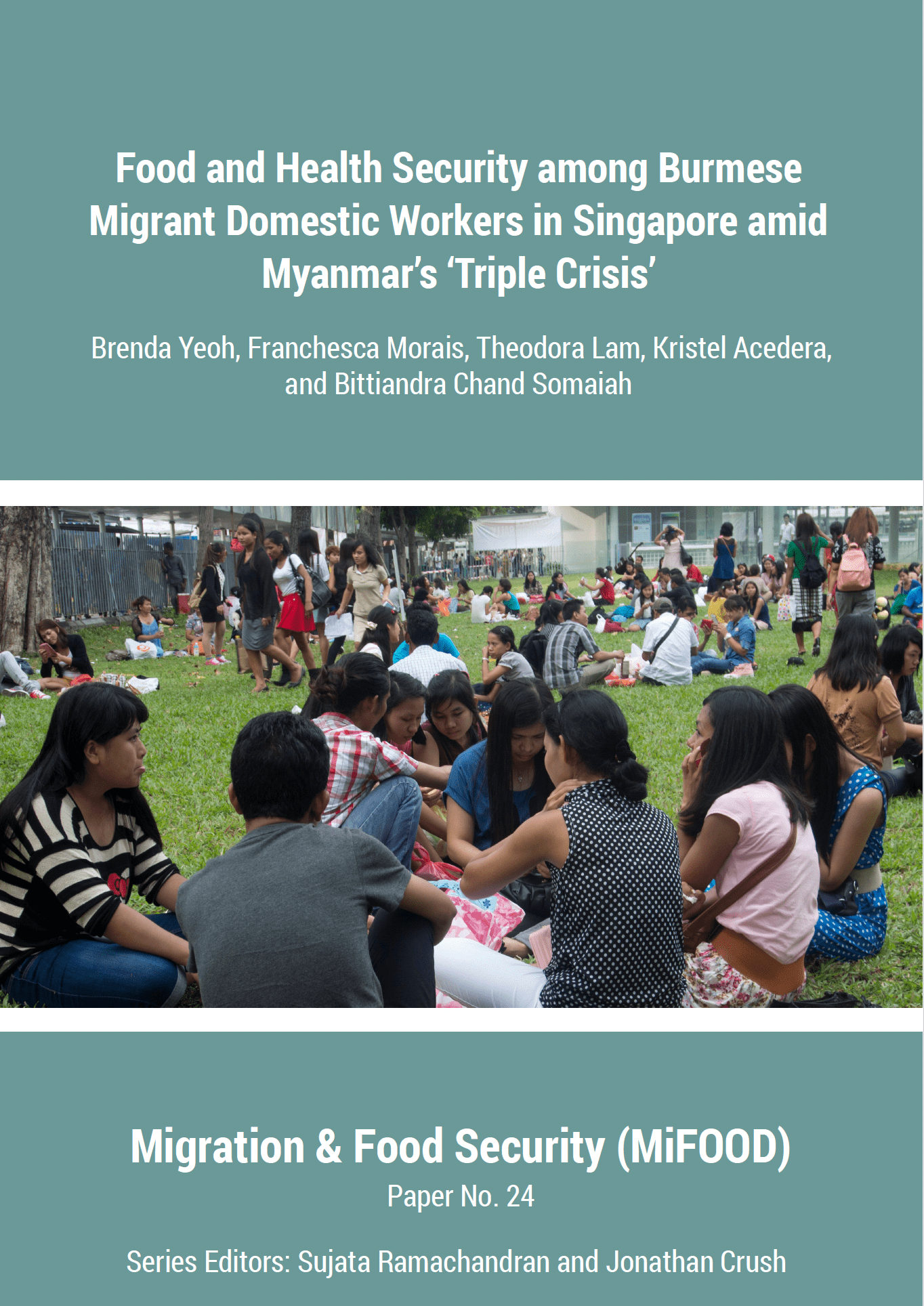Migrating overseas to work as domestic workers is an increasingly important livelihood strategy for capital-poor women in Southeast Asian countries such as Myanmar. However, the recent COVID-19 pandemic and civil unrest in Myanmar has highlighted the entrenched precarities and uncertainties attached to this migration strategy. The health crisis has further heightened the importance of remittances and food security for migrants and their sending households. Food production, food systems and access to food supplies in the country have been especially hit by political instability, the energy crisis and inflation. This paper explores issues concerning the food and health security of female migrant domestic workers (MDWs) from Myanmar in Singapore, as well as the food and health concerns of their families left in Myanmar. Drawing on the findings of in-depth interviews with 24 Burmese MDWs in Singapore, the paper first focuses on the women’s access to food and healthcare as low-waged live-in domestic workers whose lives and needs are highly dependent on their employers’ generosity and goodwill. Next, the paper employs a transnational lens to understand how these women, who are also mothers, become active participants in the larger network of global (food/health) care chains as they continue to deliver care both materially and ideologically to their left-behind families. Finally, it analyzes the food security and health concerns of their left-behind families in Myanmar through this volatile period.

